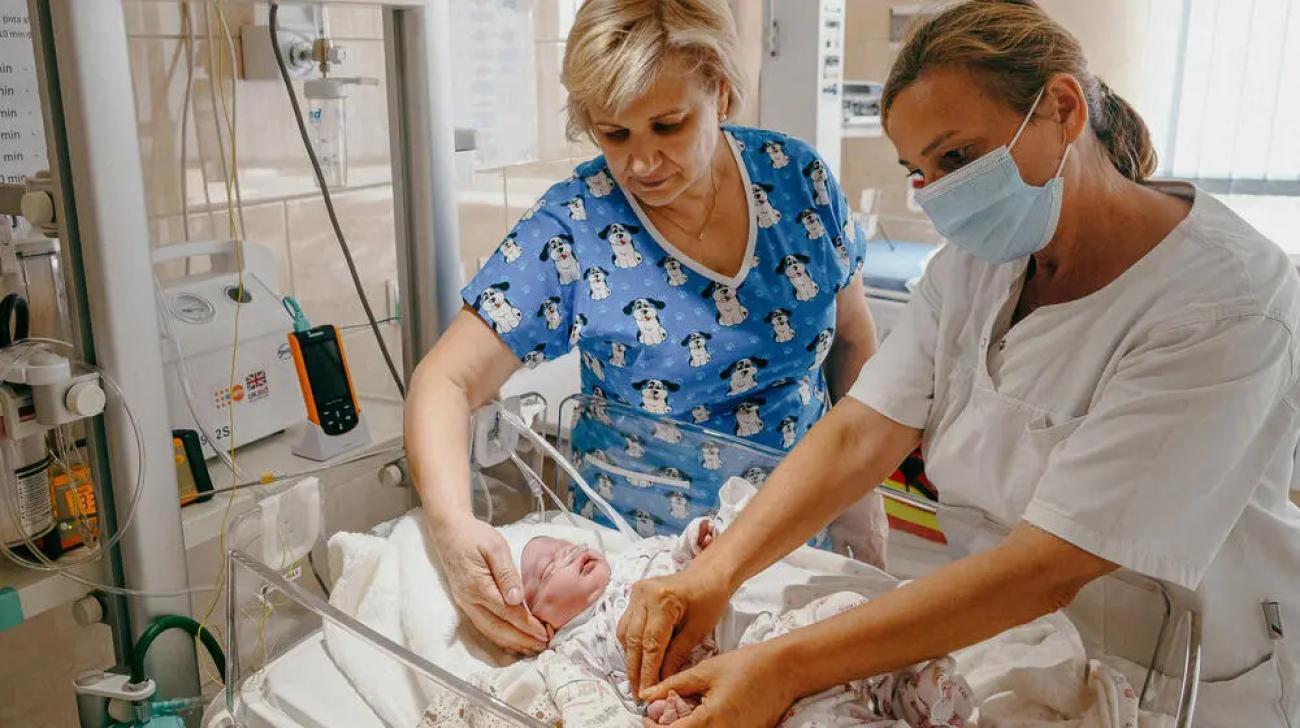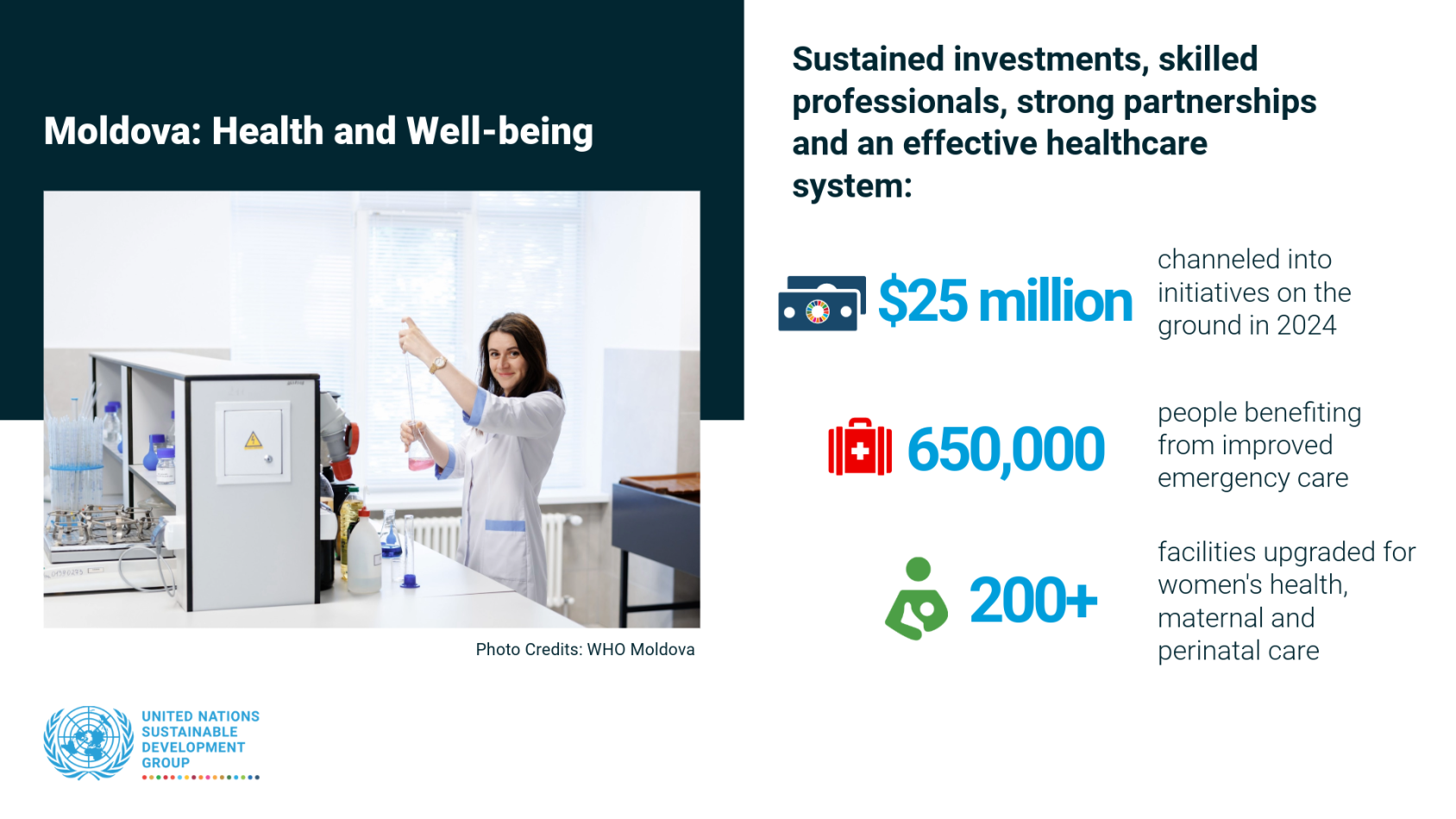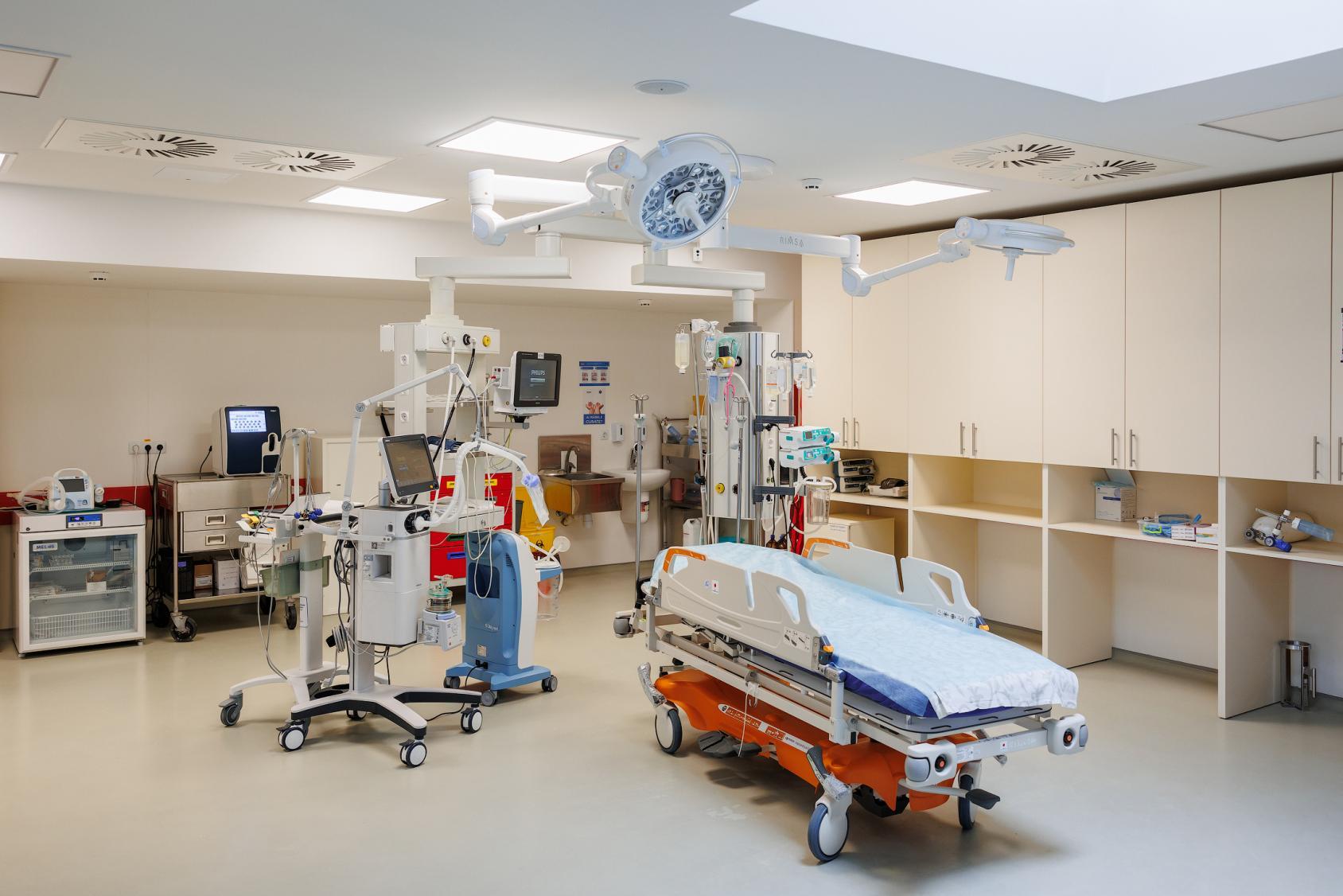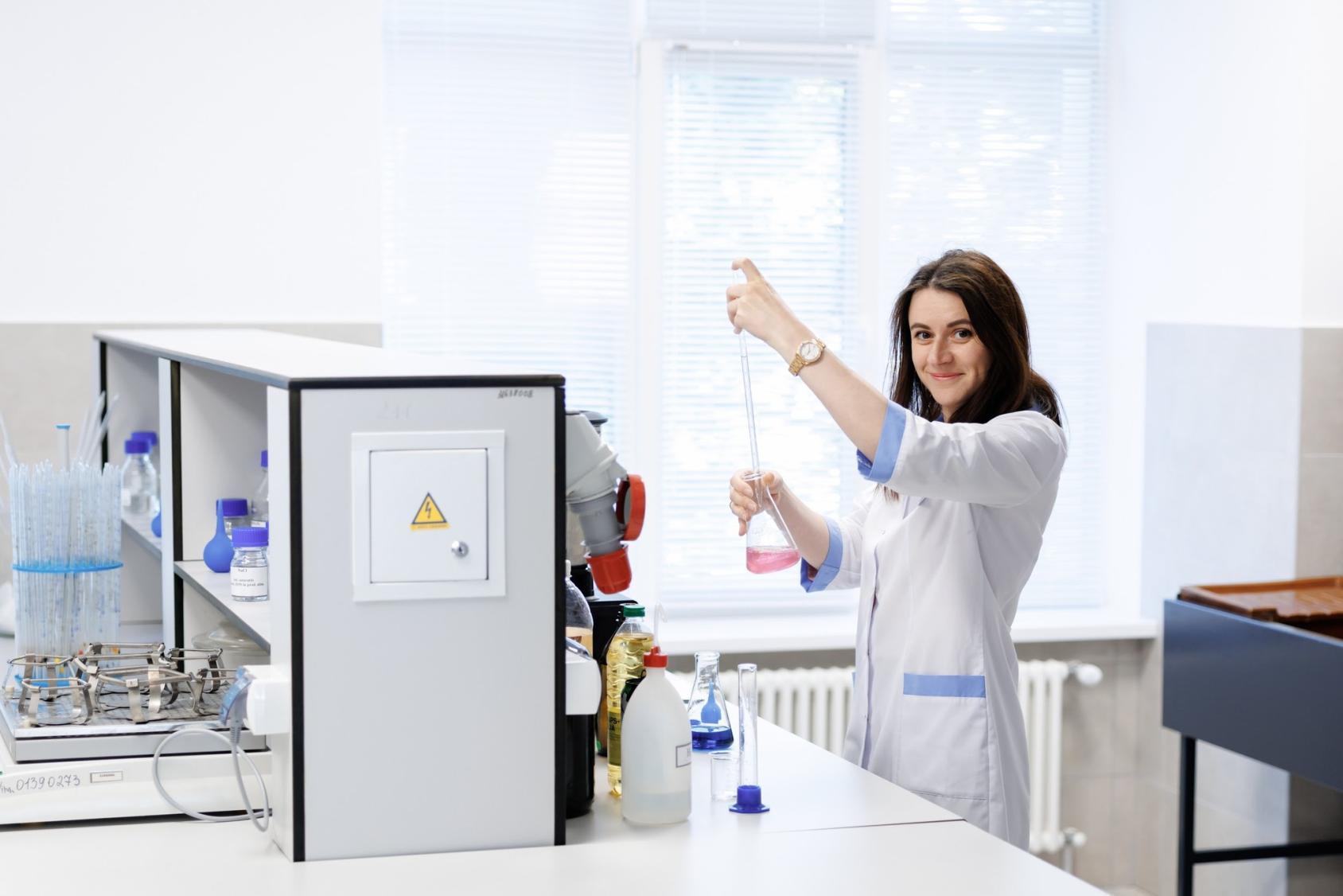Just What the Doctor Ordered: Moldova’s Healthcare Reforms

Not long ago, Yesim Oruc, United Nations Resident Coordinator in Moldova, had an accident that left her with a fractured arm.
“It was an unexpected setback, but it also gave me a very personal encounter with Moldova’s healthcare system,” she said. “From the emergency room to the follow-up care, I witnessed firsthand the sustained investments, the dedication of the professionals who cared for me and the effectiveness of a system that puts people’s well-being first. This experience confirmed what I already knew: Moldova’s healthcare system is a force for good that has made remarkable progress to impact the lives of millions.”
This progress is no coincidence. It is the result of a clear national vision, consistent investment, and strong partnerships between the Government, the United Nations, and development partners such as the European Union and its Member States, Switzerland, Japan, United States and others. This partnership built a system that is more resilient, inclusive, and equitable—one that leaves no one behind, whether a local resident or a refugee seeking safety. In 2024, the UN Country Team including agencies such as the World health Organization (WHO), United Nations Population Fund (UNFPA), United Nations Children’s Fund (UNICEF), International Organization for Migration (IOM), United Nations Refugee Agency (UNHCR) and the Joint United Nations Programme on HIV/AIDS (UNAIDS) have been part of coordinated efforts, pooling their expertise to ensure Moldova keeps its commitments to the Sustainable Development Goals, particularly SDG 3 on healthcare coverage and financing. Indeed, these efforts received the largest share of funds last year, channeling over $25 million towards impact on the ground.

Strengthening infrastructure for emergency care
One of the most visible areas of improvement has been emergency care. With WHO support, Moldova approved a strategy to reconfigure how emergency departments across the country function. This included developing a national organizational standard for their operation and introducing evidence-based trauma care guidelines. These reforms are expected to benefit over 650,000 people, helping ensure that patients in critical condition, whether they’ve suffered an accident, a stroke, or any other medical emergency, receive care that is fast, coordinated, and focused on their needs. emergency departments across the country. This included developing a national organizational standard for their operation and introducing evidence-based trauma care guidelines.
Furthermore, thirteen stroke centers throughout the country, the Oncology Institute from Chișinău, and hospital from Bălţi were equipped with new advanced technologies, improving service for over 300,000 Moldovans and Ukrainian refugees in 2024 alone. WHO has also provided simulation equipment to support hands-on training in low-resource contexts. Building on this, over 900 healthcare workers were trained in simulation-based emergency care and mass casualty management, with 500 of them receiving international certifications.

A holistic approach to public health
This is one part of a larger holistic approach to public health that Moldova has adopted in recent years. Working with the National Agency of Public Health, WHO has helped channel investments in advanced equipment, laboratory diagnostics, and training - boosting national preparedness and response to various emerging health issues. Tackling the issue of antimicrobial and drug resistance in populations, the Government along with the UN, has improved surveillance, introduced infection prevention and control guidelines, and launched new notification and toxicology modules.
Better care for mothers and newborns
Improving maternal and neonatal health outcomes, in 2024, Moldova modernized 200 gynaecological rooms across 71 primary healthcare institutions, upgraded 7 perinatal centers, acquired 3 new neonatal ambulances and 18 blood transfusion facilities with support from UNFPA ensuring safe births, in modern conditions, for every mother and newborn in the Republic of Moldova and refugees alike. Special focus was given to women with disabilities with the provision of accessible infrastructure.
Thanks to UNICEF, nearly every newborn child now has access to audiological testing. Of the 14,000 newborns tested in 2024, seven per cent exhibited some loss of hearing, helping healthcare authorities catch the issue early and respond proactively.

The journey towards resilient and modern healthcare continues
The system works because healthcare and social sector reform in Moldova go hand-in-hand. The country has consistently allocated public budget resources to finance the treatment of people regardless of insurance status.
Ms. Oruc’s own experience navigating Moldova’s health services after her accident highlighted the dedication, skill, and commitment behind these achievements. Moldova is building a system prepared for today’s challenges and tomorrow’s uncertainties. Thanks to effective health sector management, steady public budget allocations, partnerships with international actors, and the contributions of Moldovan citizens through health insurance, the country now has a solid foundation for continued development.
While Moldova has made significant strides, the journey toward a truly universal, resilient, and modern system continues. Sustained collective effort and investment, both domestic and international, will be essential. This includes maintaining momentum on infrastructure upgrades, expanding the use of digital health tools, supporting and training the healthcare workforce, and ensuring that every community has access to quality care. The UN Country Team remains ready to support Moldova in these efforts, working alongside the Government and partners to strengthen the system and ensure that progress benefits all.
For more coordination result from Moldova, click here.













